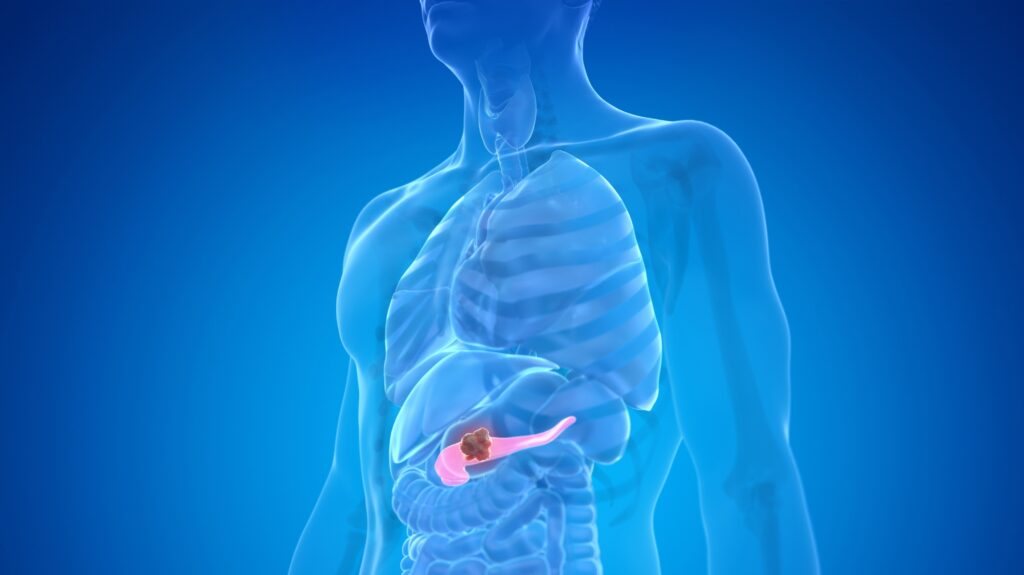How Does an Endoscopy Clinic Play a Role in Pancreatic Cancer Treatment?

Pancreatic cancer is one of the many types of cancer that can go undetected for years as this disease does not show any noticeable symptoms during its initial stages.
Hence, it is recommended that people who may have a higher chance of developing this disease get screened at an early stage. This is where endoscopy clinics in Singapore (https://gastrohealth.com.sg/services/endoscopic-ultrasound/) come into play. Endoscopy clinics offer various screenings and tests for the different organs in the digestive tract, including the pancreas.
Contents
ToggleWhat types of endoscopy procedures can help detect pancreatic cancer?
If a doctor suspects that you have a high risk of developing pancreatic cancer, you may be asked to undergo imaging tests, such as computed tomography (CT) scan or magnetic resonance imaging (MRI), along with other endoscopic tests. Because pancreatic cancer normally does not show any symptoms during the early stages, endoscopies may be added to the list of tests that a patient should go through to ensure that all bases are covered.
Here are the tests that an endoscopy clinic can provide to screen for pancreatic cancer:
Endoscopic biopsy
This procedure is carried out using an endoscope, which is a medical device made up of a long, thin, and flexible tube that has a tiny video camera attached to one end for viewing. A small tissue sample is taken from the pancreas by needle extraction. The tissue sample is then sent to a laboratory for further assessment. The results of the biopsy will determine whether symptoms of pancreatic cancer are present or not.
Endoscopic retrograde cholangiopancreatography (ERCP)
This procedure uses an endoscope to view the pancreatic and bile ducts and check for any abnormalities that may cause obstruction in the ducts, such as tumours. If a blockage is seen in the pancreatic or bile ducts, an endoscopic biopsy may be done outrightly to detect if this abnormality is a sign of pancreatic cancer. The procedure also takes X-ray images of the pancreas and the other tissues surrounding this organ.
Endoscopic ultrasound.
This procedure uses an endoscope attached with a small ultrasound device. The ultrasound device delivers high-frequency sound waves into the target area. The sound waves are able to show detailed images of the pancreas and the surrounding organs. Endoscopic ultrasound is usually recommended to screen for pancreatic cancer as other imaging tests like CT Scan and MRI may not be able to successfully detect abnormal changes or growth in the pancreas, especially for tumours that are smaller than three centimeters. An endoscopic biopsy may also be performed simultaneously during an endoscopic ultrasound.
How to prepare for an endoscopy procedure?
An endoscopy procedure is a minimally invasive procedure that requires specific preparations to ensure the success of the test. Your endoscopy clinic should provide step-by-step instructions on how to properly prepare for any type of endoscopy. Usually, endoscopy patients are asked to:
- Stop taking certain medications, such as aspirin products, iron, Pepto Bismol, or non–steroidal anti-inflammatories (NSAIDs).
- Stop consumption of solid food eight hours prior to your procedure and beverages four hours prior to your procedure. It is imperative that the digestive tract is empty and clean on the day of the endoscopy.
Inform your doctor about all the medications that you are taking during your consultation, so that other alternatives may be considered to prioritise your overall health.
Aside from preparing yourself before the procedure, you will also need to make plans for your recovery following an endoscopy. Due to its minimally invasive nature, patients who undergo endoscopy procedures are typically given sedatives to lessen any discomfort during the test. Sedatives may impair your senses, judgment, memory, and reaction times temporarily. Hence, it is important that you have a companion with you on the day of your scheduled endoscopy to assist you and drive you home. If your endoscopy is booked on a workday, plan to take a leave the day after your test to completely recover. Leave any important decision making once you have fully recovered from the endoscopy procedure.
Following your endoscopy clinic’s instructions on how to prepare for your procedure can greatly lower the risk of complications during and after the procedure.
What are there risks involved in an endoscopy procedure?
Generally, an endoscopy is considered a safe procedure. As with any type of medical screenings or tests involving tools and devices being introduced in the body, there is a very little chance that complications could occur. These are:
- Adverse reaction to anaesthesia or sedative
- Bleeding
- Damage to the digestive tract
- Infection
Adverse reaction to anaesthesia
Anaesthesia or sedatives are a part of any type of endoscopy procedure. These are given so that the patient is comfortable all throughout the duration of the procedure. Some patients may have adverse reactions to these substances.
Bleeding
Bleeding complications are expected when endoscopic biopsy is involved as this will require the removal of a tissue sample from the body. Rarely, a blood transfusion may be needed if the bleeding is out of norm.
Damage to the digestive tract
While the risk of damaging the internal organs where the endoscopy traverses through is very low, it may still happen. Any damage, such as tearing of a certain organ in the digestive tract, may require you to be confined in the hospital for recovery or surgery.
Infection
Infection risks during endoscopy procedures are low and if ever this happens, they can be treated with antibiotics. As a preventive measure, your doctor may prescribe an antibiotic for you to take prior to the endoscopy procedure.
Observe your body after the endoscopy procedure. If you experience any of the symptoms below, immediately contact your endoscopy clinic:
- Abdominal pain that are persistent and severe
- Bloody or dark stool
- Chest pain
- Fever
- Shortness of breath
- Swallowing difficulties
- Vomiting, especially when there is blood or traces of blood
Conclusion
An endoscopy clinic plays a vital role in the diagnosis and treatment of pancreatic cancer. Early detection of pancreatic cancer is crucial to increase the rate of survival. If you have a high risk of developing this type of cancer, visit an endoscopy clinic in Singapore to get a recommendation on which kind of endoscopy can help identify symptoms of pancreatic cancer.
–
Gastrohealth – Centre for Digestive and Liver Care
6A Napier Road, Annexe Block
#03-37 Gleneagles Hospital
Singapore 258500
https://gastrohealth.com.sg/
+655 6355 5773
+65 9776 2721
Recommended For You
Why Are Object Recognition Test (ORT) And X-ray Test So Important!
Most Inside
Most Inside offers high-quality recommendations and valuable updates to enhance all aspects of your life, providing premium guidance and enriching experiences.




